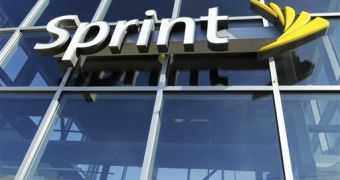People familiar with Sprint Nextel’s plans say the operator will begin carrying Apple’s iPhone 5 this fall, creating more competition for the two existing carriers of Apple smartphones, AT&T and Verizon Wireless.
Citing a high-profile source of industry news, numerous reports are coming out today saying that Sprint, America’s third largest wireless operator, will start selling the fifth-generation iPhone this autumn.
Not long after the news broke out, Sprint shares rose 33 cents, or 10.1%, to $3.59, according to the LA Times.
Thanks to the recently closed deal between Cupertino and the carrier, Apple will gain access to an important new channel for selling its elusive smartphone in The States.
With over 52 million subscribers, Sprint is in no way negligible when it comes to one of the strongest (if not the strongest) pillars of Apple’s business.
By comparison, Verizon has roughly 106 million whereas AT&T has 99 million.
These two will also begin selling the iPhone 5 in mid-October, two people familiar with the matter said.
A research note issued by Wall Street analyst Gene Munster (of Piper Jaffray) says that adding Sprint as an iPhone carrier will increase Apple's estimated 2012 sales from 111 million to 117 million, according to AppleInsider.
Sprint, just like Verizon Wireless, operates a CDMA network. While Apple already has both GSM and CDMA standards covered with the iPhone 4, the company’s next-generation iPhone is believed to be a ‘world-phone.’
The terms ‘world-phone’ and ‘global phone’ are not official, but they represent a device whose internal architecture permits roaming on both GSM and CDMA airwaves.
And that’s precisely what an iPhone developer claims to have discovered about the iPhone 5 lately.
Logs obtained by the developer whose applications had reportedly been tested on new hardware running iOS 5 bear strong evidence that Apple’s iPhone 5 will indeed pack the proper hardware to use both GSM and CDMA standards.
Moreover, there are rumors that Qualcomm will replace Intel’s baseband chip in the iPhone 5. Qualcomm is known to provide the baseband to the CDMA version of the iPhone 4.

 14 DAY TRIAL //
14 DAY TRIAL //